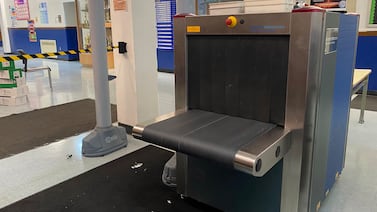Warren Township Superintendent Tim Hanson knows what his district has to do to recoup the learning students lost during the most disruptive months of the pandemic.
He needs more licensed teachers in Warren Township schools to work closely with students in reading and math. But he doesn’t know if he can get enough of them this year, especially for middle school math.
“We just haven’t been able to identify or locate candidates,” Hanson said.
Finding math teachers has always been hard. But Hanson faces additional obstacles: the pandemic, public health uncertainties, a state teacher shortage in key areas, and Indiana’s comparatively low teacher pay.
The new school year brings huge challenges to Hanson and other superintendents. They must figure out the needs of students who missed much of last year, and devise ways to help them catch up while navigating safety protocols — and political debates — like masks and fluctuating health orders, and unknowns like enrollment and long-term funding.
Across Indianapolis, administrators are shrinking class sizes, creating more small learning groups, and hiring teachers to work with students who need help.
Warren already has added 12 interventionists to help with reading in elementary schools.
Warren Township also will resume testing three times a year to monitor student growth and progress and is working on shrinking class sizes.
The district aims to cap kindergarten at 24 students, elementary classes in the high teens or low 20s, and higher grades at 30 students.
The district is using federal funds to pay teachers per-hour to tutor after school. On last spring’s state tests only 8% of Warren Township students passed both the English and math state tests, one of the lowest rates in Marion County.
“We’re not going to be able to make up one year in one year; it’s going to take some time,” Hanson said.
Warren Township also is hiring liaisons to provide families with resources, support and district communication.
“When schools and families are working together, that increases the success for the student,” Hanson said.
Perry Township also is trying to arrange more small-group learning. The school district has tapped federal relief funds to hire 23 additional teachers to provide individual and small group instruction in schools.
Test data from last school year flagged more students who need additional help, Superintendent Pat Mapes said. That includes many students who are just beginning to learn English — Perry Township serves the highest percentage of English learners in the city.
For those students, working in small groups is critical, Mapes said. “Most of the time, it’s trying to master literacy skills so they can understand English and start moving through coursework.”
The district will test progress monthly.
“We don’t have to wait for 10 weeks to go by, or wait for half a year to go by,” Mapes said.
Lawrence Township also is hiring family engagement liaisons to support students and boost attendance at each school, said Troy Knoderer, the district’s chief academic officer.
In Indianapolis Public Schools, Superintendent Aleesia Johnson said the district will use federal relief funds for additional staff training. The district has added 10 professional development days.
“If our teachers feel prepared and better supported to do so then we’ll see the outcomes in the instruction that students receive each day,” Johnson said.
Realizing that the federal funds expire in a few years, she said that the district is trying “to not staff in such a way that three years from now we’re facing an exacerbated fiscal cliff.”





